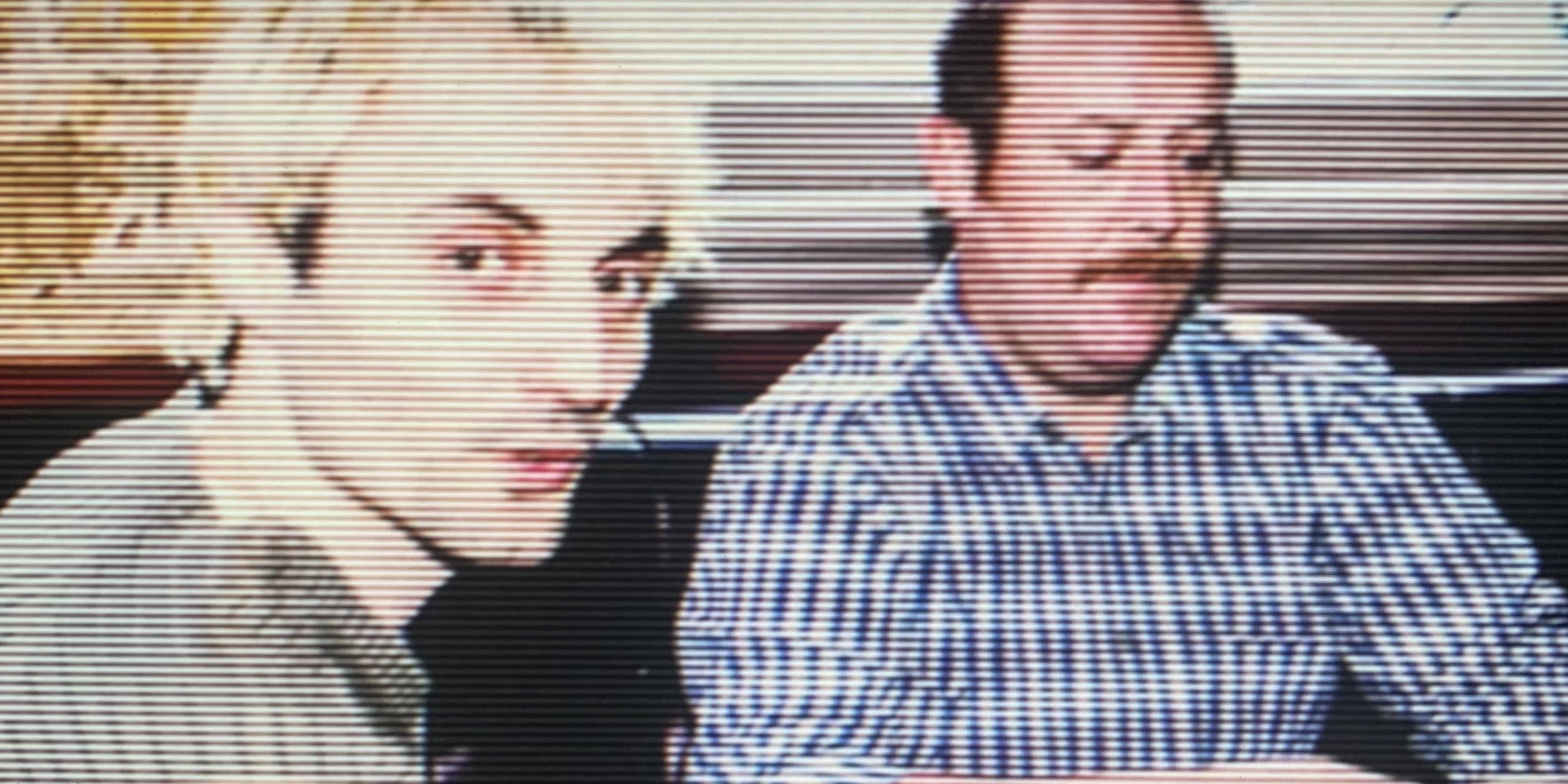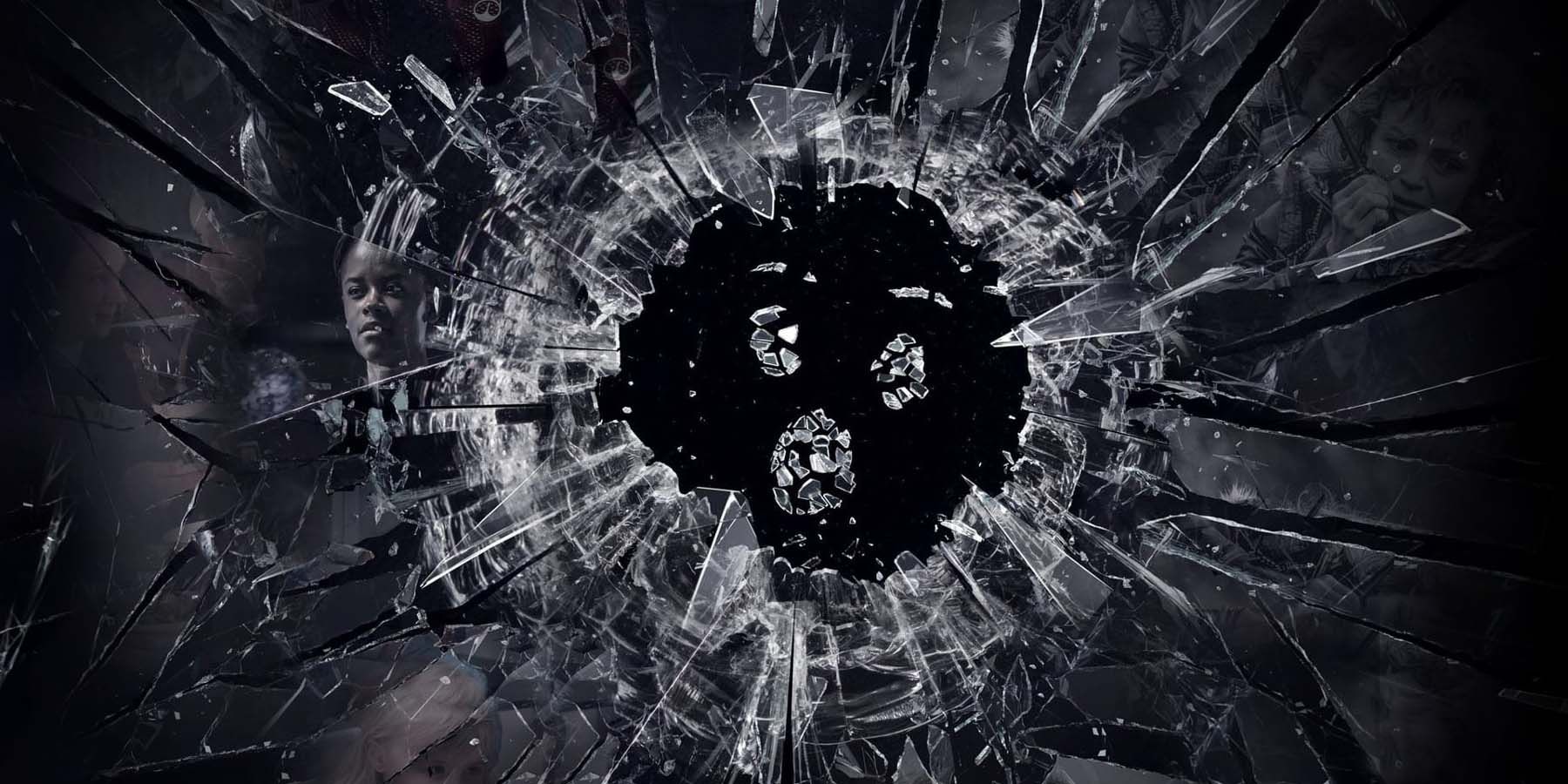
Decoding the Mind-Blowing Twist in Black Mirror: Loch Henry Revealed

Unravel the gripping ending of Loch Henry in this insightful article Discover the truth behind the real killer and explore the thought-provoking commentary on technology in this thought-provoking Black Mirror episode
Spoilers ahead for Black Mirror Season 6 Episode 2: "Loch Henry."
Black Mirror's latest season takes a captivating turn in its second episode, "Loch Henry." Departing from the relatively lighthearted tone of "Joan Is Awful," this episode delves into a darker and more intense storyline, focusing on serial murder and deep-rooted family secrets.
What is Loch Henry about?
The ending of the episode may have left some Black Mirror fans puzzled by its numerous twists and subtleties. The plot is anything but straightforward, and combined with its underlying social criticism, "Loch Henry" demands multiple viewings. The conclusion, in particular, might raise questions, one of which is: how does it relate to technology? Black Mirror is renowned for using technological advancements as the central theme of its unsettling stories, often providing chilling commentary on the blurring line between humans and machines. "Loch Henry" follows this pattern, albeit in a manner that necessitates further investigation.
Returning to the rural Scottish town of Loch Henry, Davis McCardle (Samuel Blenkin) and his girlfriend, Pia (Myha'la Herrold), both graduates of film school, have arrived with an intriguing plan. They aim to produce a documentary about a man in another town renowned for his staunch defense of rare eggs against persistent egg thieves. As they settle in, they find themselves residing with Davis's mother, Janet (Monica Dolan), whose somewhat strained interactions with Pia create moments of uncomfortable tension.
Pia and Davis stand in awe of the breathtaking Scottish scenery at Loch Henry. Pia voices her curiosity about the lack of inhabitants in the area. Intrigued, they decide to unwind at a local bar, where fate introduces them to Davis's childhood friend, Stuart King. Stuart and Davis enlighten Pia with the chilling tale of the notorious serial killer who turned Loch Henry into a forsaken destination - Iain Adair. Pia finds herself utterly engrossed in the horrifying account of how Iain sadistically murdered both tourists and locals. The story takes a personal turn when they mention Davis's late father, Kenneth, a brave police officer who lost his life defending the town against Iain's violent rampage.
Unable to resist the allure of such a captivating narrative, Pia suggests shifting their crime documentary's focus to Iain Adair and celebrating the heroism of Davis's father. Although her boyfriend appears uneasy with the idea, Pia stands her ground, adamant that this new direction will make for a compelling film. A heated debate ensues between Pia and Davis, eventually leading to a compromise. Together with Stuart, they hatch a plan to explore Iain's now abandoned residence, hoping to capture some gripping footage for their project.
Eventually, the teams discovers that—much to their surprise—Davis's mother and father were both willing accomplices to Iain Adair's horrendous crimes. Afterwards, while trying to escape from an enraged Janet, Pia stumbles and sustains a head injury, presumably resulting in her death. Subsequently, Janet leaves behind tapes containing incriminating evidence, accompanied by a note that says "For your film. Mum," before taking her own life in her residence. Following this sequence, the ending of the episode abruptly but appropriately shifts the narrative from its secluded small town setting to the grand stage of the BAFTA Film Awards. Davis and a team of documentary filmmakers graciously accept an award for their true crime documentary, "Truth Will Out."
Who is the real killer in Loch Henry?
The intricate narrative of "Loch Henry" can be perplexing to comprehend. With vital details concealed from viewers until late in the episode, a multitude of lingering questions can arise by the time it concludes. In order to grasp the ending completely, it is imperative to have a clear understanding of who killed whom, when, and why.
Initially, both the audience and the residents of Loch Henry believed that Iain Adaire acted alone, committing numerous murders. He was apprehended by Kenneth, who was then shot by Iain before Iain turned the gun on himself and his parents. Unfortunately, Kenneth later succumbed to an infection caused by his gunshot wounds.
However, the truth is quite different. In actuality, Kenneth and Janet concocted a false story to protect themselves. It was Kenneth who killed Iain and his parents, leaving Iain with a shoulder wound to frame him for the crimes. Tragically, Kenneth's plan backfired when he died from an infection, although it was self-inflicted.
During a conversation with Pia, Stuart reveals that his father, Richard (played by John Hannah), witnessed Iain openly ridiculing a couple who had gone missing. This led Richard to suspect Iain's involvement in their disappearance. Stuart claims that he reached out to Kenneth to investigate further. It is plausible that Kenneth murdered Iain and his family out of fear that Iain could jeopardize their sinister operation.
Why did Janet support the creation of a documentary about her own crimes if Kenneth and Janet were the true masterminds? Upon discovering the nature of her son's upcoming documentary, she becomes emotional, seemingly eager to have her husband's story told. Contrary to what one might assume, these tears are likely genuine. In a way, Iain's boldness led to her husband's demise, and Janet seems to reminisce about the days when she and her husband committed murders through a nostalgic lens.
Some viewers may wonder how Pia meets her demise. Regrettably, the answer may disappoint certain readers. While attempting to escape from Janet, she trips, hitting her head and losing consciousness. When the scene transitions to the BAFTAs, Pia is deceased. With limited information available, it can be inferred that she died either upon impact or shortly after.
What Does Loch Henry Say About Technology?
Black Mirror episodes often incorporate commentary on modern technology, as the show's title refers to the reflection seen on an un-powered digital screen. So, what does winning a BAFTA have in common with the themes of tech addiction and artificial intelligence horror?
Reflecting on the first episode of the show, "The National Anthem," from its inaugural season, it becomes apparent that Black Mirror doesn't always need to rely on speculative future technology for its horror. Instead, it can effectively highlight the extreme misuse of something that people interact with regularly. This is evident in the episode "Loch Henry."
While it doesn't rely on the introduction of some horrifying new gadget, it exposes the disturbing delight that people derive from watching true crime. Davis may have won his BAFTA now, but what did he sacrifice to achieve it? And what do his viewers lose when they consume it? The true crime genre thrives on the existence and accessibility of terrible trauma and tragedy, yet many people nowadays consider it one of their preferred genres for casual and comforting enjoyment. Alongside "Joan Is Awful," "Loch Henry" solidifies the sixth season of Black Mirror as a chilling spectacle deeply ingrained in the horrors of modern entertainment.
















